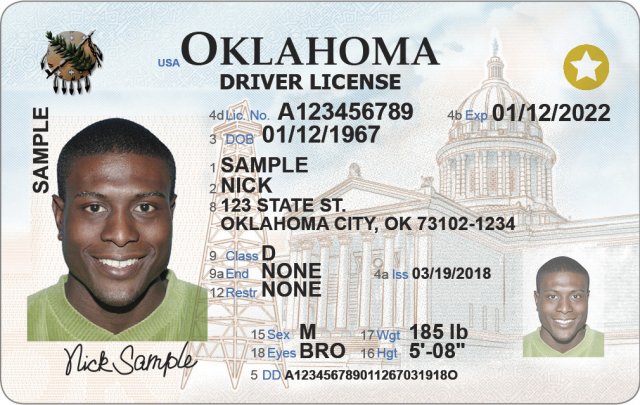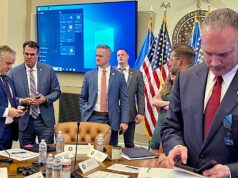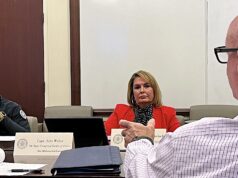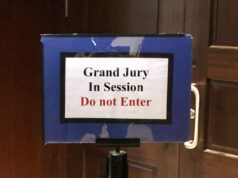
A long-awaited REAL ID program that would help Oklahoma passengers board airline flights without issue has been delayed again — this time because of COVID-19.
For many years, Oklahoma has been defiant and delayed in complying with the REAL ID Act, passed by Congress in 2005 to make state driver’s licenses more secure in the wake of the 9/11 attacks. In 2007, Oklahoma lawmakers passed legislation flatly refusing to implement the new requirements.
However, in March 2017, former Oklahoma Gov. Mary Fallin signed the state’s REAL ID Act permitting residents to choose between the REAL ID-approved license or the current standard license, which no longer would be accepted to gain entrance to military bases or federal buildings or board passenger flights.
This story was reported by Gaylord News, a Washington reporting project of the Gaylord College of Journalism and Mass Communication at the University of Oklahoma.
REAL ID is a joint effort between the federal and state governments to improve the security of state-issued identification cards, with the intent of fighting terrorism by making it more difficult for counterfeit identification to escape detection.
REAL ID cards are distinguishable from standard-issue driver’s license cards by a star in the upper right of the design.
The U.S. Department of Homeland Security announced in March that the nationwide REAL ID enforcement deadline of Oct. 1, 2020, had been extended by a year to Oct. 1, 2021. The extension was granted for states that needed more time to prepare after government agencies were forced to adjust their daily operations because of the COVID-19 pandemic that is sweeping the country.
Sarah Stewart, director of media operations for the Oklahoma Department of Public Safety, said the state’s plan, before the pandemic took hold in the U.S., was to begin issuing REAL IDs in April.
“Oklahomans will eventually have the option of going to either a DPS facility or a tag agent to get their REAL ID,” Stewart said.
Oklahoma residents will not be able to visit state public safety facilities until they re-open after safer-at-home restrictions are lifted, Stewart said. The agency temporarily closed its 33 driver’s license offices on April 4.
“Where the pandemic will affect this is the rollout across the state,” she said. “That rollout will be significantly slowed down because, during this time, we’re not able to conduct our training on the new system, and it will also be difficult to get the new work stations to all the different locations throughout the state.”
Oklahoma is one of only two states, the other being Oregon, yet to implement the new requirements. But states that have complied before this year have reported backlogs.
While Oklahoma residents are not technically required to obtain a REAL ID-compliant card by October 2021, non-compliant driver’s license cards will not be accepted for travel on commercial airlines or entrance into federal facilities. A passport or a permanent residency card, among perhaps additional forms of identification, will be required to gain entry to federal facilities or to board an aircraft.
“States across the country are temporarily closing or restricting access to DMVs,” acting Secretary of Homeland Security Chad Wolf said in a March 26 news release referring to motor vehicle offices. “This action will preclude millions of people from applying for and receiving their REAL ID. Extending the deadline will also allow the department to work with Congress to implement needed changes to expedite the issuance of REAL IDs once the current health crisis concludes.”























